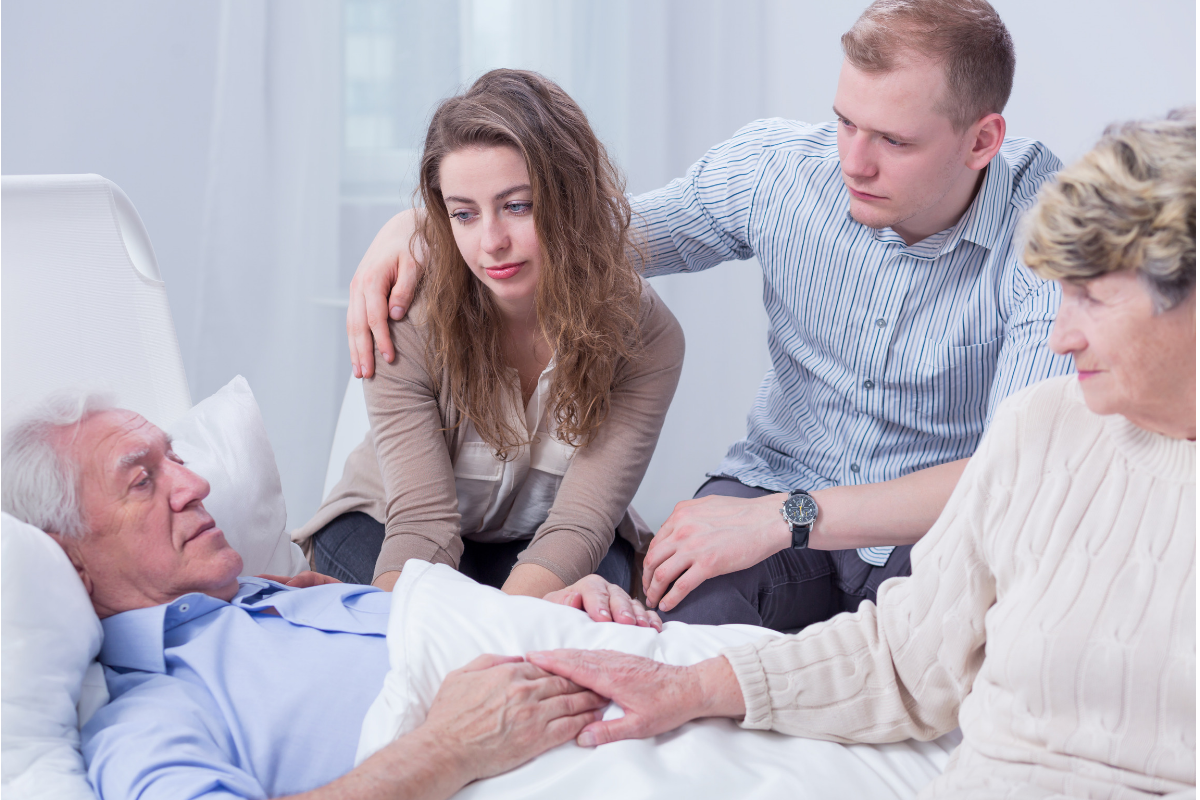Getting My New Orleans Hospice To Work
Table of ContentsRumored Buzz on Hospice In New OrleansThe Basic Principles Of Hospices In New Orleans 5 Simple Techniques For New Orleans HospiceThe 2-Minute Rule for Hospice AssociatesNew Orleans Hospice Fundamentals Explained
This comfort-focused care goals to enhance patients' lifestyle once they have chosen to no longer seek alleviative treatment. Hospice is integrative. It resolves the patient's medical, emotional, and spiritual requirements, and it honors their goals and long for end-of-life care. In doing so, hospice patients are frequently able to live out their remaining days, weeks, and months more comfortablyand oftentimes, for longer periodsthan they would if they had continued looking for alleviative treatment until the point of death.Hospice and palliative care services can enhance the lifestyle for rural locals of all ages who are handling serious health problem or injury. provides care to people experiencing terminal illness with a life expectancy of 6 months or less if the illness runs its natural course. It is based on the belief that everybody has the right to die pain-free and with self-respect.
It helps clients and their households live life to its max. Called comfort care, helpful care, or sign management is specialized care that deals with the symptoms or suffering related to a disease at any phase of the diagnosis. It can be incorporated into any healthcare setting and is delivered by a team of health care experts with support from a palliative care professional, if available.
3 Easy Facts About Hospice Associates Described
These services might consist of some or all of the following, depending upon the patient's condition: Medical care supplied by physicians, physician assistants, and nurses Medications for discomfort relief or symptom management Social work services Dietary counseling Physical, occupational, and speech-language treatment (including assist with swallowing) Grief and bereavement counseling for the client and relative Spiritual therapy Medical products and devices associated to the client's diagnosis Hospice assistant and housewife services Objectives of care conversations A member of the hospice team can be reached at all times to address concerns and to check out patients when required.
Hospice specialists and volunteers can also teach caretakers and household members ways to help their liked one. Clients whose conditions improve can choose to suspend hospice care and may resume services later on, if they wish.

The Ultimate Guide To Hospice New Orleans
Continuous house care home-based care for a short-term symptom crisis that needs eight hours of care or more per day. Inpatient respite care care offered in a facility setting for approximately 5 days to supply break for an informal caretaker. new orleans hospice. General inpatient care short-term inpatient care to manage signs that can not be handled in another setting.
Typically, when a patient enrolled in Medicaid Advantage (MA) elects to receive hospice care, traditional fee-for-service Medicare becomes financially accountable for hospice care and most other Medicare services, while the MA strategy retains coverage of additional advantages.
These service providers might serve one or more rural locations., a 2019 publication by the Center to Advance Palliative Care and the National Palliative Care Research study Center, notes that while 71. 5% of medical facilities with more than 50 beds have a palliative care program, just 40% of sole neighborhood providers and 36.
Hospice and palliative care are provided by interdisciplinary groups that assist patients approach completion of life with comfort, peace, and dignity. Hospice groups frequently include, but are not restricted to: Physicians Nurses Therapists Home health assistants Bereavement and spiritual counselors Social workers Volunteers The patient and his/her household are considered part of the hospice group, as well.
Scientific nurse specialists and outdoors participating in doctors can not be participating in suppliers, nor are they licensed to carry out in person encounters. These my review here meetings are required before the first 180 days and every 60 days thereafter. For rural hospice programs that might not have a doctor or nurse specialist readily available at all times, these requirements can be difficult to fulfill.
Get This Report about Hospice New Orleans
As noted in the Rural Screen post Community-based Palliative Care: Scaling i was reading this Gain Access To for Rural Populations, physician in addition to ordinary people in some cases puzzle palliative care with hospice care, and incorrectly presume that palliative treatment is proper just for people who are nearing the end of life. The exact same article notes that although hospice care is covered by lots of insurance prepares as a benefit, palliative care generally is not.
These include: Inadequate Medicare reimbursement Expenses connected with travel Regulatory requirements with monetary ramifications Higher expenses due to greater numbers of direct care encounters by service providers treating clients at house Smaller number of freestanding or for-profit rural hospices Much shorter average length of stay Operating expense that are not included in the daily rate As specified in Rural Implications of Modifications to the Medicare Hospice Benefit, rural hospices deal with barriers in offering service.